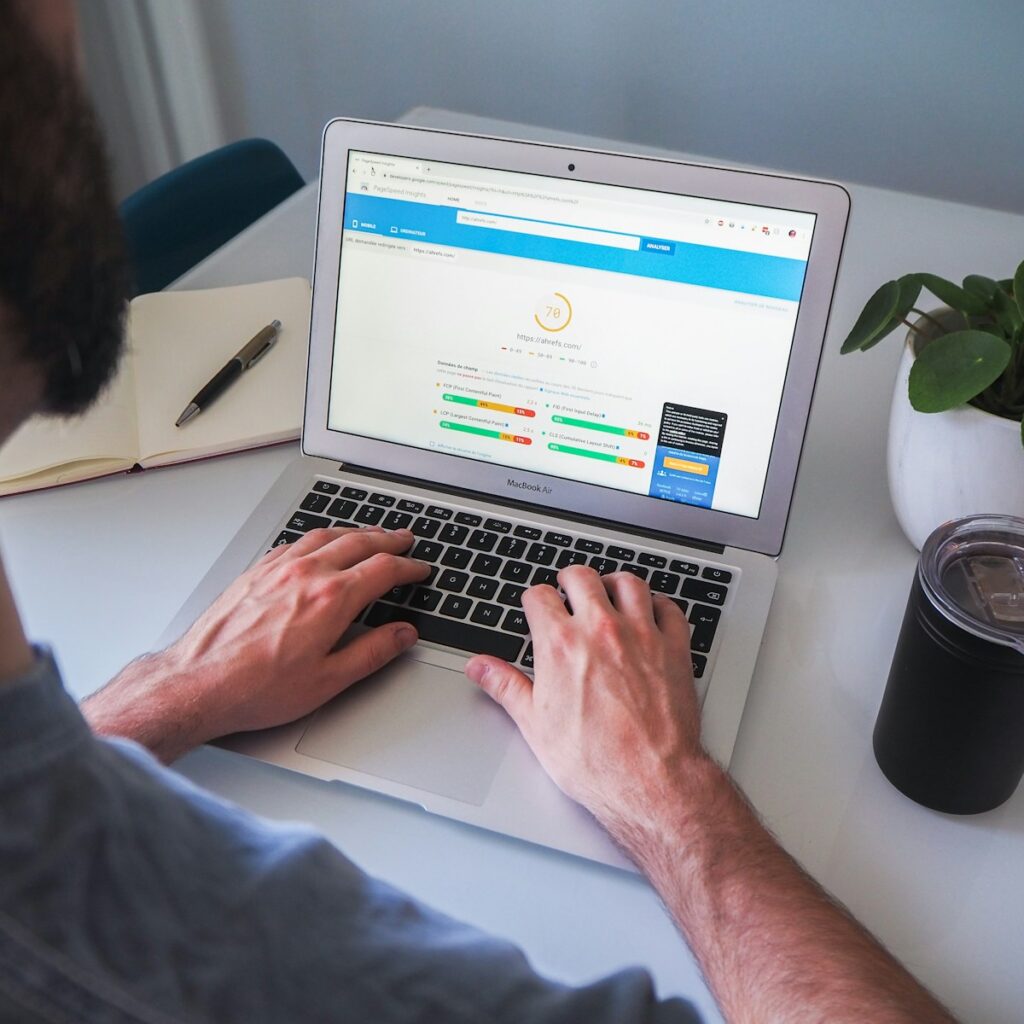In the competitive hotel industry, having a user-friendly and SEO-optimized website is more important than ever. Your website is often the first point of contact for potential guests, and if it’s difficult to navigate or doesn’t load quickly, you risk losing valuable bookings. Whether you’re targeting Indian travelers exploring domestic destinations or international guests planning a getaway, a well-designed website can significantly boost your bookings and increase direct traffic. In this blog post, we’ll cover five essential tips to design a user-friendly hotel website that not only provides an excellent user experience but also attracts both Indian and worldwide travelers through effective SEO strategies
1. Prioritize a Mobile-Responsive Design
With mobile searches and bookings on the rise—especially in India, where smartphones are the primary device for many travelers—your hotel website must be mobile-responsive. This means your site should adapt seamlessly to different screen sizes, offering a smooth browsing and booking experience on smartphones and tablets.
Why Mobile Responsiveness Matters:
- India and Global Travelers: As mobile-first markets like India and increasingly tech-savvy international travelers use smartphones to search for hotels, Google prioritizes mobile-friendly websites in search rankings (mobile-first indexing).
- Improved User Experience: A responsive website provides a better user experience, reducing bounce rates and increasing engagement. Visitors are more likely to complete bookings if they can easily navigate your site on any device.
Key Features for Mobile-Friendly Design:
- Simple, clear navigation
- Click-to-call buttons for easy communication
- Fast-loading pages
- A streamlined booking process with minimal steps
By ensuring your website is mobile-optimized, you’ll cater to the growing number of mobile users, both in India and globally, increasing your chances of attracting more direct bookings.
2. Ensure Fast Loading Speeds for Optimal Performance
Site speed is a crucial factor for both user experience and SEO. Travelers today have little patience for slow-loading websites, and even a delay of just a few seconds can lead to lost bookings. According to Google, 53% of mobile users abandon sites that take longer than 3 seconds to load. Fast loading speeds are also a ranking factor for search engines, meaning slow pages can hurt your visibility in search results.
Why Site Speed is Crucial:
- User Experience: Faster websites keep visitors engaged. A seamless experience encourages users to explore your hotel’s offerings and complete bookings.
- SEO Impact: Google uses page speed as a ranking signal, so a slow website may be buried beneath competitors in search results, reducing your visibility to potential guests, including those searching from India and abroad.

How to Improve Site Speed:
- Optimize images without compromising quality
- Use a reliable web hosting service
- Minimize code (HTML, CSS, JavaScript)
- Implement caching to improve load times for return visitors
- Use tools like Google PageSpeed Insights to identify and fix performance issues
Investing in site speed optimization will not only improve your SEO but also lead to a better user experience, which increases the likelihood of visitors converting into customers.


3. Simplify Navigation and Improve User Flow
An intuitive, easy-to-use navigation system is critical for keeping visitors on your website. If users can’t quickly find the information they need, they’re likely to leave your site and book with a competitor. A user-friendly design ensures visitors can navigate effortlessly through your website, leading them toward making a booking.
Key Features for Simple Navigation:
- Clear Menu Structure: Group content logically (e.g., “Rooms & Rates”, “Amenities”, “Dining”, “Attractions”, “Contact Us”) and keep it consistent across all pages.
- Search Functionality: Allow visitors to search for rooms, dates, and special offers quickly. If possible, provide a booking widget that’s accessible from every page.
- Sticky Headers/Navigation: Make the main navigation menu accessible as users scroll through your website.
Why It’s Important for Indian and Global Travelers:
- For Indian Travelers: As more travelers from India use mobile devices to browse and book, keeping navigation simple ensures they can easily find information, like prices, room types, and availability, without frustration.
- For International Travelers: Travelers from other countries may not be familiar with the area. Offering clear and accessible navigation—along with language options and currency converters—can enhance their experience.
Simplifying navigation ensures that users spend less time searching for information and more time booking, which ultimately leads to more conversions.



4. Optimize for Local and Global SEO
An SEO-friendly hotel website is essential for driving organic traffic from both Indian and international travelers. Local SEO helps you rank higher for region-specific searches, while global SEO strategies expand your reach to travelers around the world. By implementing both, you can ensure your hotel ranks in relevant search results and attracts more potential guests.
Local SEO for Indian Travelers:
- Google My Business (GMB): Ensure your hotel is listed with accurate details on GMB. Add high-quality images, your hotel’s location, business hours, and respond to guest reviews. This is crucial for appearing in local search results.
- Location-Specific Keywords: Use keywords that target Indian travelers, such as “Hotels in Delhi,” “Best Beach Resorts in Goa,” or “Luxury Hotels in Agra.” Use tools like Google Keyword Planner or Ahrefs to find the most relevant search terms.
Global SEO for International Travelers:
- Multilingual Website: If your hotel attracts international guests, consider offering your website in multiple languages, such as English, French, German, or Mandarin. This helps improve the user experience and SEO for non-English speaking visitors.
- Currency Converters: Including a currency converter on your website helps global travelers estimate costs and book with confidence.
By optimizing your website for both local (Indian) and global SEO, you can increase your visibility in search engine results and attract a wider range of potential guests.


5. Create Engaging and Relevant Content
Content is king when it comes to both user engagement and SEO. Your website should provide valuable content that addresses the needs and questions of potential guests. Engaging content not only keeps visitors on your site longer but also builds trust and credibility.
Content Ideas for Hotel Websites:
- Destination Guides: Write helpful articles about the local area, including popular tourist spots, restaurants, shopping areas, and cultural events. This will help travelers discover more about your location, and your site will rank for destination-related keywords.
- Guest Reviews and Testimonials: Showcase positive reviews from previous guests. User-generated content is a strong trust signal for potential customers, especially for international travelers unfamiliar with your hotel.
- Blog Posts: Regularly update your blog with tips for travelers, seasonal offers, hotel events, or local festivals. Blog posts are also an excellent way to target long-tail keywords like “family-friendly hotels in Goa” or “best hotels in Delhi with free Wi-Fi.”
Why Content Matters for SEO:
- Rank Higher: High-quality, keyword-rich content will improve your SEO rankings, making your website more visible to travelers from both India and around the world.
- Establish Trust: Engaging content helps establish your hotel as an authority in the travel industry, building trust with potential guests.

